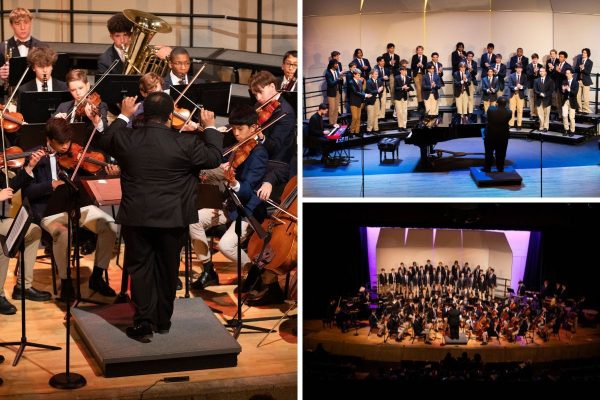OHML
February 25, 2018
As a school that tries to challenge students in all academic fields, University School likes to extend learning outside the classroom. For example, English and History students have the ability to enter in the Scholastic Writing Awards and the Political Essay Contest, while Science students can pursue their interests with a Strnad proposal. In terms of Math, students participate in the numerous competitions our school is involved in.
One such competition is the Ohio Mathematics League (OHML), where Honors math students partake in a six question exam every month. Students are given a time-limit to answer questions based on principles learned in Freshman Algebra to Precalculus, however the questions are not straightforward. Usually, the OHML asks test-takers to expand on their knowledge from math class and apply it to more complex problems. Nevertheless, there are a multitude of opinions surrounding the mandatory exam.
“In my opinion, I think the OHML should be optional,” sophomore John Shaw said. “I don’t really find the exam to be fun or useful. The OHML should probably be a club, where students are forced to take the exam.”
“I don’t really like how the OHML takes up my opposite lunch,” sophomore Marty Ellis said. “There are days where I plan to do my homework and schedule meetings, but the OHML ruins my plans. In addition, I don’t feel like I gain much from the experience, as I never understand how to solve the problems I get wrong because they are never reviewed in class.”
Despite this, some feel like the OHML is a rewarding experience.
“I enjoy taking the OHML because I like discovering new types of problems,” sophomore Sukhm Kang said. “Even if I do poorly on the exam, I still feel like I learn something new after each exam.”
“One critique I do have is that the exam is only open to Honors math students, so a majority of the student body doesn’t have the opportunity to take it,” Sukhm continued.
Besides the OHML, students also take the American Mathematics Competition (AMC), which is a national exam that examines problem-solving skills and mathematical knowledge. There are two versions for this exam: the AMC 10, for 9th and 10th graders, and the AMC 12, for 11th and 12th graders. Both exams have 25 multiple choice questions with 75 minutes to complete them.
Something unique about the AMC is that guessing and getting the answer wrong scores less points than not answering the question at all. This makes students have to strategize what questions to skip to maximize their score.
“The exam was extremely difficult,” Senior Eric Miranda said. “I was only able to complete 10 out of the 25 questions.”
Overall, students have differing opinions on the math competitions.










